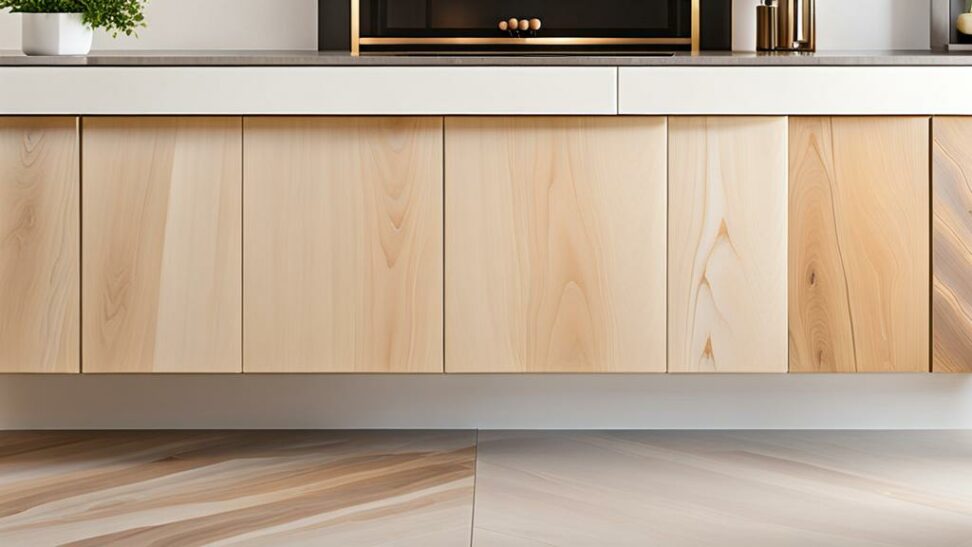How to Pick Durable, Low Maintenance Countertops for Your Kitchen
When remodeling a kitchen, choosing the right countertop material is key. With heavy daily use, you'll want a surface that can withstand years of meal prep, cooking, cleaning, and more. While gorgeous granite and marble countertops may catch your eye, they require frequent sealing and aren't the most durable options.
We'll focus on options that are low maintenance yet able to handle the demands of a busy kitchen. Let's explore how granite, quartz, laminate, and other materials hold up over time.

Granite Countertops
Overview
Granite is a natural stone that's mined from quarries across the world. Made primarily of quartz and feldspar, it's an extremely hard material resistant to scratches, stains, and heat.
While granite remains a top choice for kitchen countertops, it does require occasional sealing to prevent stains from setting in. Overall, it provides unparalleled durability that can last for decades.
Pros
- Extremely durable and able to withstand years of heavy use
- Resists knives, hot pans, and impact from dropped objects
- Available in a wide variety of colors and patterns
Cons
- More expensive than laminate or wood countertops
- Requires sealing every 1-2 years to prevent stains
Quartz Countertops
Overview
Quartz countertops are engineered stone made from quartz particles bonded with resin. This combination results in a non-porous, highly durable surface resistant to scratches, stains, and heat.
As a manufactured product, quartz offers more limited colors and patterns than natural stone. But it requires zero maintenance and sealing, outperforming granite in durability.
Pros
- Most durable option, ideal for heavy daily kitchen use
- Never needs sealing or polishing
- Stain, crack, chip, and heat resistant
Cons
- More expensive than laminate or butcher block
- Fewer color/pattern options than granite
Laminate Countertops
Overview
Laminate countertops offer an affordable, low maintenance option for busy kitchens. Made by fusing plastic laminate onto a plywood or particle board base, they come in hundreds of color and pattern choices.
While resistant to moisture, laminate isn't completely waterproof. It's also susceptible to chipping and scratches over time. But with a little care, laminate counters can last 10-15 years.
Pros
- Budget-friendly, starting around $10 per square foot installed
- Hundreds of color and pattern options
Cons
- Prone to chipping and scratching over time
- Not waterproof, can swell and warp if excessively wet
Butcher Block Countertops
Overview
Butcher block offers the warmth and character of solid wood like maple, walnut, or teak. This style adds natural beauty to rustic, farmhouse, or traditional kitchens.
However, wood requires much more maintenance than stone or laminate. Frequent sealing is essential to prevent stains, warping, and bacteria growth in grooves.
Pros
- Visually appealing for certain kitchen aesthetics
- Can be sanded and resealed over time
Cons
- Requires sealing every 3-6 months
- More prone to staining and wear than granite or quartz
Factors to Consider When Choosing Countertops
When deciding which material is best for your kitchen, keep the following factors in mind:
- Usage - How much daily prep and cooking will your counters see? Opt for a very durable material if your kitchen gets heavy use.
- Maintenance - Are you willing to periodically seal and polish your counters? Low maintenance options like quartz are ideal if not.
- Cost - What does your kitchen remodeling budget allow for? Laminate is most affordable, while granite and quartz cost more but also last longer.
- Style - Which material fits your kitchen's existing aesthetic - traditional, modern, rustic? This can help narrow options.
When choosing a durable, low maintenance countertop, quartz and granite are your best bets. Both offer non-porous surfaces able to withstand years of daily use. Quartz requires no sealing, while granite needs it only every year or two.
For a more budget-friendly option, laminate costs much less while providing decent durability. Just avoid excessive moisture. Butcher block is beautiful but requires diligent sealing and maintenance. Consider how much use your counters will see and how much upkeep you’re willing to do.
With the right countertop material, you can enjoy a kitchen surface that stays looking like new for years to come.